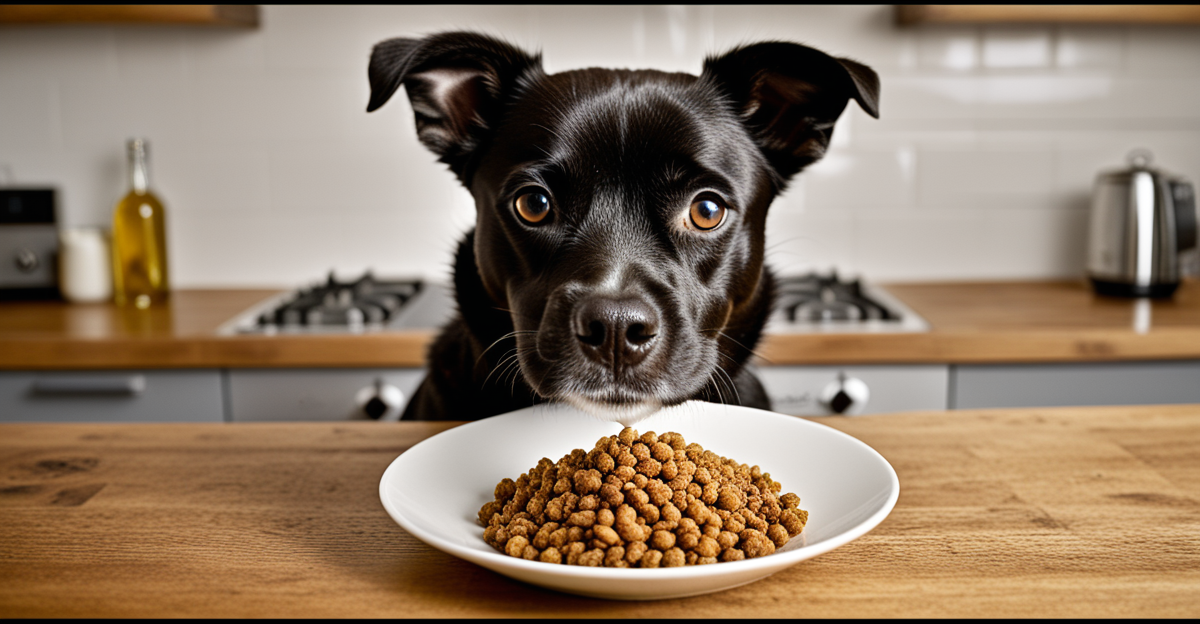Understanding Nutritional Needs of Pets in the UK
Every pet’s nutritional needs vary significantly depending on their species, age, breed, and health status. In the realm of pet nutrition UK, dogs and cats have distinct dietary requirements. For instance, cats require higher protein levels and specific amino acids like taurine, which dogs do not need in the same amounts. Moreover, puppies and kittens need calorie-dense food to support growth, whereas older pets often benefit from diets rich in joint-supporting nutrients and lower calorie content to prevent obesity.
Common nutritional deficiencies in pets can include a lack of essential fatty acids, vitamins such as A or D, and minerals like calcium or phosphorus. If unmet, these deficiencies may lead to serious health issues ranging from weakened immunity to bone problems. Avoiding them means selecting healthy pet food that is complete and balanced, ideally tailored to your pet’s specific stage and condition.
Also read : How Can UK Pet Owners Better Understand the Dietary Needs of Their Pets?
Understanding these core needs ensures pets receive the proper support for vitality and longevity. Consulting with a veterinary professional further refines this approach, guaranteeing that dietary plans align with the unique health circumstances of each animal. This knowledge empowers pet owners across the UK to make informed decisions related to pet nutrition UK and maintain their companions’ well-being.
Types of Pet Food Options Available in the UK
When considering UK pet food types, owners typically face choices among dry kibble, wet canned food, and raw pet diets UK. Each option presents unique benefits and drawbacks related to nutrition, convenience, and pet preference.
Additional reading : How can I ensure my pet’s mental well-being in the UK?
Dry food, or kibble, is popular for its ease of storage and dental benefits, as chewing helps reduce plaque. It’s often formulated to meet comprehensive pet dietary requirements and can be an economical basis for a balanced diet. Wet food offers higher moisture content, beneficial for hydration, especially in cats prone to urinary issues. However, it may be pricier and less convenient than dry food.
Raw pet diets UK are gaining interest among owners seeking a natural feeding approach. These diets emphasize uncooked meats, organs, and bones, mimicking ancestral diets. Advocates claim improved coat condition and energy levels, but this diet requires careful preparation to avoid nutritional imbalances and bacterial contamination.
Choosing healthy pet food depends on your pet’s species, age, health, and preferences. Consider factors like ingredient transparency, nutrient completeness, and any specific sensitivities. For example, a senior dog might benefit more from wet food with joint-supportive supplements, while an active young dog could thrive on nutrient-dense dry food.
Navigating these options with knowledge of their pros and cons empowers pet owners in the UK to select diets best suited to their companions’ needs.
Evaluating UK Pet Food Brands and Regulatory Standards
Choosing safe pet food starts with understanding UK pet food brands and the regulations ensuring product quality. In the UK, pet food is governed by strict pet food regulation UK standards to protect pets from harmful ingredients or misleading claims. Brands adhere to these rules to certify their products meet nutritional adequacy and safety benchmarks.
Labels often display certifications from UK or European authorities, confirming compliance with dietary guidelines. Knowing how to read ingredient lists and claims helps owners discern between genuinely nutritious options and marketing fluff. For example, fully balanced foods must specify nutrient profiles aligned with pet dietary requirements set out by regulatory bodies.
Leading UK pet food brands invest in transparent sourcing and manufacturing processes to provide healthy pet food devoid of unnecessary fillers or contaminants. Some offer specialized lines tailored for age, breed, or medical conditions, catering to diverse nutritional needs.
Pet owners should look for certifications such as the UK pet food regulation marks or adherence to EFSA (European Food Safety Authority) guidelines, which collectively safeguard ingredient quality and manufacturing safety. This knowledge empowers consumers to select trusted brands confidently and maintain their pets’ health through properly regulated nutrition.
Understanding Nutritional Needs of Pets in the UK
Tailoring pet nutrition UK to the specific needs of different animals ensures their health and longevity. Dogs, cats, rabbits, and other pets each have unique pet dietary requirements. For example, cats are obligate carnivores requiring high protein and essential amino acids, such as taurine. Dogs, although omnivorous, need balanced protein, fats, and carbohydrates at different life stages. Elderly pets often require diets lower in calories but richer in joint-supportive nutrients, reflecting changes in metabolism and activity levels.
Breed differences also affect nutrition. Larger dog breeds might be prone to joint issues benefiting from glucosamine supplements, whereas small breeds may need calorie-dense food to sustain energy. Health conditions such as kidney disease or allergies further necessitate specialised diets to prevent exacerbation.
Common nutritional deficiencies in pets include insufficient omega-3 fatty acids, vitamin A, and calcium. Such deficiencies can cause compromised immunity, poor coat condition, or bone malformations. To avoid these, it’s crucial to select healthy pet food that is complete and balanced, formulated to meet your pet’s exact stage, breed, and health needs.
Veterinary advice remains key to adjusting diets precisely, ensuring pets receive optimal nutrition for their unique circumstances. Understanding these principles empowers UK owners to provide effective and safe nourishment for their companions.
Understanding Nutritional Needs of Pets in the UK
Pet nutrition UK varies widely between species, requiring tailored diets to meet distinct pet dietary requirements. Dogs, cats, rabbits, and small mammals each have unique nutrient needs. For example, cats require higher protein and taurine levels, while rabbits need fibre-rich diets for digestive health. Recognizing these differences helps in selecting healthy pet food that supports optimal wellbeing.
Age significantly impacts nutritional needs: puppies and kittens demand calorie-dense, nutrient-rich food to fuel growth, whereas senior pets benefit from diets that support joint health and maintain ideal weight. Breed differences also matter; large-breed dogs may require diets with controlled calcium to prevent bone issues, while small breeds often need more concentrated nutrients.
Common nutritional deficiencies in pets include inadequate essential fatty acids, vitamins A and D, and minerals such as calcium or phosphorus. These deficiencies can cause problems like immune dysfunction, bone disorders, or poor coat condition. Avoiding these requires feeding complete and balanced healthy pet food formulated specifically for your pet’s species, age, and health status.
Consulting with veterinary professionals ensures diets meet all pet dietary requirements, helping to prevent common deficiencies and promote long-term health across diverse pet populations in the UK.
Understanding Nutritional Needs of Pets in the UK
Different pets have specific pet dietary requirements that vary by species. For example, dogs require balanced proteins, fats, and carbohydrates, while cats, being obligate carnivores, need higher protein and essential amino acids like taurine. Rabbits and other small pets have distinct fiber needs critical for digestion, which is an integral part of pet nutrition UK.
Age significantly influences pet nutrition. Puppies and kittens require calorie-dense, nutrient-rich food to support rapid growth. Conversely, older pets benefit from diets lower in calories but enriched with joint-supportive nutrients such as glucosamine and omega-3 fatty acids. Breed differences also matter; large breeds may need joint supplements, and small breeds often require more concentrated energy sources.
Common nutritional deficiencies include omega-3 fatty acids, vitamin A, calcium, and essential amino acids. These deficits can weaken immunity, worsen coat quality, and cause bone or organ issues. Selecting healthy pet food that is complete and balanced ensures these shortages are avoided. Reading ingredient lists for nutrient completeness and consulting with veterinarians helps tailor nutrition to individual health and life stage. This proactive approach supports pets’ vitality and longevity within the framework of pet nutrition UK.
Understanding Nutritional Needs of Pets in the UK
Pet nutrition UK must account for species-specific pet dietary requirements to provide truly healthy pet food. Dogs and cats, for example, have fundamental differences; cats, as obligate carnivores, require high protein and taurine, while dogs need a balanced mix of protein, fats, and carbohydrates. Beyond species, age alters nutritional needs: puppies and kittens demand calorie-dense, nutrient-rich food for rapid growth, whereas senior pets benefit from diets that support joints and maintain a healthy weight.
Breed differences also influence nutrition. Large breeds may need diets with controlled calcium and joint-supportive nutrients to prevent bone problems, while small breeds often require more concentrated nutrients to meet higher metabolism needs. Health status is equally critical: pets with kidney disease or allergies often require specialised diets customised to avoid exacerbating those conditions.
Common nutritional deficiencies include insufficient omega-3 fatty acids, vitamins A and D, and minerals such as calcium. These deficits can weaken immunity, impair bone development, or cause poor coat condition. Avoiding these requires selecting healthy pet food that is complete and specially formulated to meet your pet’s exact stage, breed, and health status.
Veterinary advice plays a vital role in refining diets, ensuring compliance with precise pet dietary requirements for optimal well-being in the UK.







